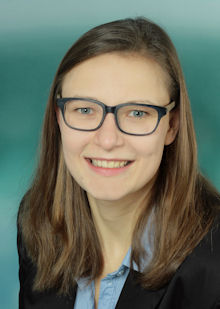05-MCM-MR2 Research Module Mineralogy II
Representative Ella Schmidt
When you select the profile Mineralogy one research project in profile Mineralogy has to be done with a supervising lecturer contributing to profile Mineralogy. A second research project can be done either in profile Mineralogy, too (under the same conditions), or in profile Chemistry.
Preconditions and application for the module project:
12 CP must have been accomplished in MCM profile Mineralogy before a research project may be tackled in Mineralogy. For potential projects please contact potential supervisors and examiners. Potential supervisors and examiners may ask for specific prerequisite courses (explicitly reassure yourself with your supervisor and examiner). The student agrees on a defined topic with a potential supervisor and examiner and formally submits an application (retrieve from examination office) to the module representative (via examination office) which will usually be confirmed or refused by the module representative. The research project must have been accomplished before you can apply for your Master thesis.
What happens if an application for a specific research project fails?
If a proposal should be refused first contact the module representative together with your potential supervisor. If this fails you may also appeal to the examination board (via examination office) for re-evaluation. Another option might be to discuss with the module representatives of the research projects in Chemistry whether the given project could be suitable there. If anything fails you may discuss modifications of the project with your supervisor and/ or the module representative which may make it suitable.
Potential research projects:
Typically the project will be in the research focus of the supervisor. In many cases the research project might include preliminary and preparatory work that may lead into a related subject of a master thesis. Please discuss with your potential supervisor and examiner whether the subject is suitable for that.
To give you an idea a research project may, e.g., consist of the synthesis of inorganic materials or the preparation and modification of natural minerals, measurements or modelling of the kinetics of mineral-fluid reactions, together with their characterization by techniques taught in the MCM program, e.g., RAMAN-coupled vertical scanning interferometry (VSI), electron microscopy (EM), atomic force microscopy (AFM) and kinetic Monte Carlo calculations, single-crystal and powder X-ray diffraction, electron microscopy with EDX, atomic force microscopy, vertical scanning interferometry, optical microscopy, etc.
Outcomes and assessment
The student will learn to answer a well-defined scientific question. All methods used and data/results produced must be summarized in a written report or publication manuscript. The student will learn how to approach a research problem, utilize certain methods for the investigation of the problem and write a scientific report.
Students know how to organize a self-designed research project
Students are able to work highly autonomous under supervision on a given research subject
Students are acquainted with experimental and analytical or computer modelling techniques for the defined project
Students show the ability to write a scientific report OR a manuscript for publication, to defend their research results and conclusions.
Mininum 12 CP in selected profile
Course Type 1: Project Exercise (PE) 10.0 SWS ( 140.0 h)
Tutorial(s): -
Workload:140.0 h presence time
180.0 h self-study
40.0 h exam workload
360 h total workload
module exam
exam elements: 1
SL: 0
100 % project exercise report
Specific to the project, please consult with your mentor/ supervisor. Usually you will be asked to collect and consider literature autonomously. You might be provided with initial papers but this is up to the mentor/supervisor.
Basic Data
Master Materials Chemistry and Mineralogy
Module Type
Compulsory
Second Year of Study
Offering Departement
FB5 Geosciences
Wintersemester
Course LanguageEnglish
12 CP
10 SWS
Contact

Contact
Prof. Dr. Ella Schmidt
GEO 2340
 uni-bremen.de
uni-bremen.deContact

Contact
Prof. Dr. Ella Schmidt
GEO 2340
 uni-bremen.de
uni-bremen.de
